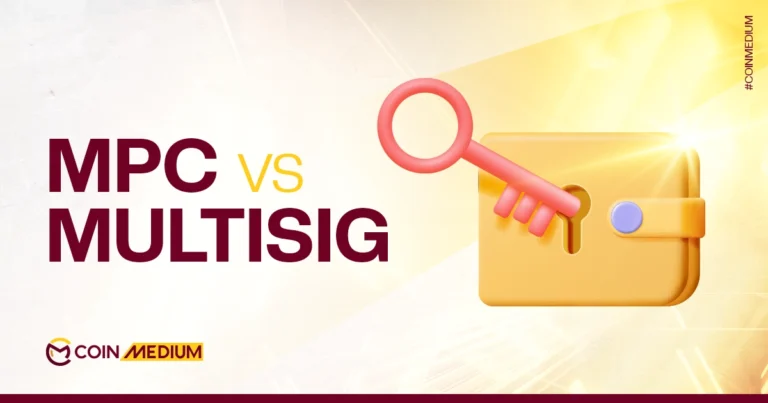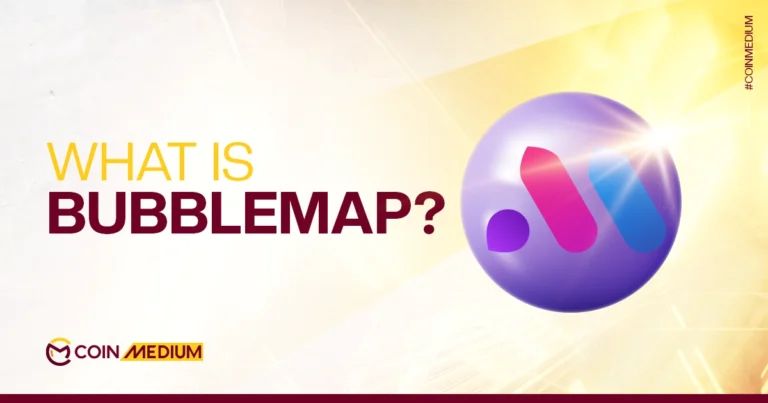As cryptocurrency grows, people are making new tools to make blockchains more intelligent and dependable. An oracle is one of these tools. Oracles help blockchains connect to the real world.
Blockchains are safe and decentralized, but they can’t get information from outside sources like stock prices, weather reports, or sports scores. Oracles fix this by sending real-world data to the blockchain so that smart contracts can make the right choices. Blockchains can do more than just keep track of transactions with oracles. They can run systems like DeFi, insurance, and gaming without the need for banks or other middlemen.
What is an oracle?
An oracle in cryptocurrency is a service that provides real-world data to a blockchain. Since blockchains cannot directly access outside information, they depend on oracles to deliver accurate, trustworthy data. The information could be anything from exchange rates to election results or shipping updates.
An oracle is more like a translator between the blockchain and the outside world. Smart contract programs that run automatically when certain conditions are met need this outside data to function properly. Without oracles, smart contracts wouldn’t be able to connect with the outside world.
Different types of oracles
Many types of oracles transfer information from the outside world to blockchains. For example, software oracles retrieve information from the internet, including cryptocurrency prices, weather reports, and sports scores. Similarly, hardware oracles use physical sensors and devices to transmit data. Then there are human oracles; these are people who give verifiable information when expert judgment is needed.
In the DeFi world, software oracles are the most common choice for crypto users when it comes to observing the market rates before conducting transactions like borrowing or selling of tokens. Being extremely fast with data and no updates given less priority, they are certainly the best fit in the financial world and for smart contracts that demand real-time data.
Conversely, hardware oracles are like informers the other way to take the world into the blockchain and vice versa. They not only can monitor shipments continuously, but also can check whether the goods are at the right temperature during the whole process of transportation. They literally keep the tangible world and the digitized one in constant communication. Similarly, human oracles come into play when it is necessary to validate a court ruling or determine the outcome of a private event. In scenarios where trust and human expertise are of the essence, they turn out to be extremely helpful.
Chainlink and Band Protocol are two widely recognized blockchain platforms that provide trusted oracle services capable of nurturing DeFi applications and other blockchain projects.
What is the interplay between oracles and blockchain technology in the supply chain?
Blockchain is a digital ledger that is permanently locked in. It is thus very easy and safe for companies to visualize every move in the supply chain. In the case during which a company deals with perishable goods or electronics, the blockchain along with the oracle can log who contributed what, where and when, and most importantly, that nobody can falsify or erase this record later.
An oracle’s necessity is highlighted perfectly in a scenario involving a pharmaceuticals company. A hardware oracle, like a temperature sensor, authenticates the box contents and transmits the data to the blockchain every hour. For example, the factory, the logistics provider, and the buyer can track that the pharmaceuticals were maintained under the appropriate temperature all through the distribution chain. This achieves better organization, less disputes and also provides precise monitoring in case of malfunction.
Public blockchains, like Ethereum, are different from private blockchains. In public blockchains, data is added using a wallet address, not a real name, so users stay anonymous unless they choose to reveal their identity. Companies often use private blockchains, where they know every user. Each company or person has permission to add data, and their names or roles are shown. This way, you can always know who added what information. You can learn more about blockchains here.
How are oracles used in finance?
Oracles are not just important in DeFi, they are actually the very foundation of lending platforms. Whenever a borrower takes a credit loan in the form of cryptocurrencies, the usual requirement is also to provide a collateral which is normally some other asset that gets locked up to guarantee the loan. In order to maintain the fairness of the deal, it is essential for the platform to come up with the current prices of both the loan and the collateral.
That is precisely where oracles come in. They extract price data from various exchanges at real-time intervals via APIs. Consequently, the smart contracts can always verify the current market prices and, hence, maintain the correctness of the pricing. Oracles are a must in the system as without them it would not be possible to know the fluctuations in prices of collaterals which could eventually result in risks or losses for both the sides i.e. the borrowers and the lenders.
What are the challenges of using oracles?
Oracle systems are quite advantageous when it comes to blockchain technology, however, they are not without their disadvantages. One of the main issues with oracles is that they are highly dependent on outside data, and thus it is the blockchain that has to place its trust on them for the input’s correctness. In case the source of the data is incorrect, falsified, or compromised, then the smart contract will come to a wrong conclusion, and that will eventually bring the entire process down.
To add up, it is very risky to be relying on one oracle for a smart contract. If that particular oracle has a problem or is attacked, the system may either stop working or give wrong results. It is the reason that a number of platforms eventually resort to the use of several oracles, and the verification of data from diverse sources as a means of preventing the information from being inaccurate and unsafe.
Currently, there is the usage of oracle aggregators in many platforms, which operate by taking data from several oracles, assessing the outcomes, and presenting the unified data, for example, the average Bitcoin price. This procedure secures the accuracy and safety of the information before it is passed to the smart contract, thus, guaranteeing that the participants get a fair treatment in the process.
How are Oracles used in everyday life?
In the contemporary setting, oracles are not confined to the world of high finance, but rather are utilized in applications that impact people’s daily lives. A typical instance is the insurance for in-flight delays. The data for the flight is being monitored by an oracle in real-time if the flight is late. The smart contract will then automatically send you the money without you having to make a claim or speak to anyone if there is a delay. Etherisc is one such service provider that collaborates with over 80 major airlines to collect flight data worldwide. In the event of a flight delay beyond 45 minutes, the system uses oracles for data confirmation and payment transmission to the passenger.
The online gaming and fantasy sports sector is another area where oracles apply. In addition to traditional sports betting, modern blockchain games like Sorare rely on oracle-assisted real-time football results and player’s statistical data, thus being able to set points and awards for the games very neutrally. The whole process is done smoothly without the danger of cheating or making mistakes, as the basis of the gaming is like Fantasy Premier League but it’s running on blockchain with smart contracts and rewards.
Oracles also come into play in weather-based insurance that supports farmers. In the event that the season receives insufficient rain, an oracle will indeed access the weather data from credible sources. The farmer is then compensated by the smart contract funded by a partial loss of the farmer due to inadequate rainfall. This is a service offered by a company called Arbol.
As the technology behind blockchain keeps on advancing, oracles are on the forefront of bringing it into the real world. Oracles have been assisting from farmers and travelers, powering DeFi platforms, and even the gaming industry, quietly influencing how we interact with decentralized systems. But this is just the start. With the increasing online data usage, oracles will ensure that the data is safe, current, and credible.







